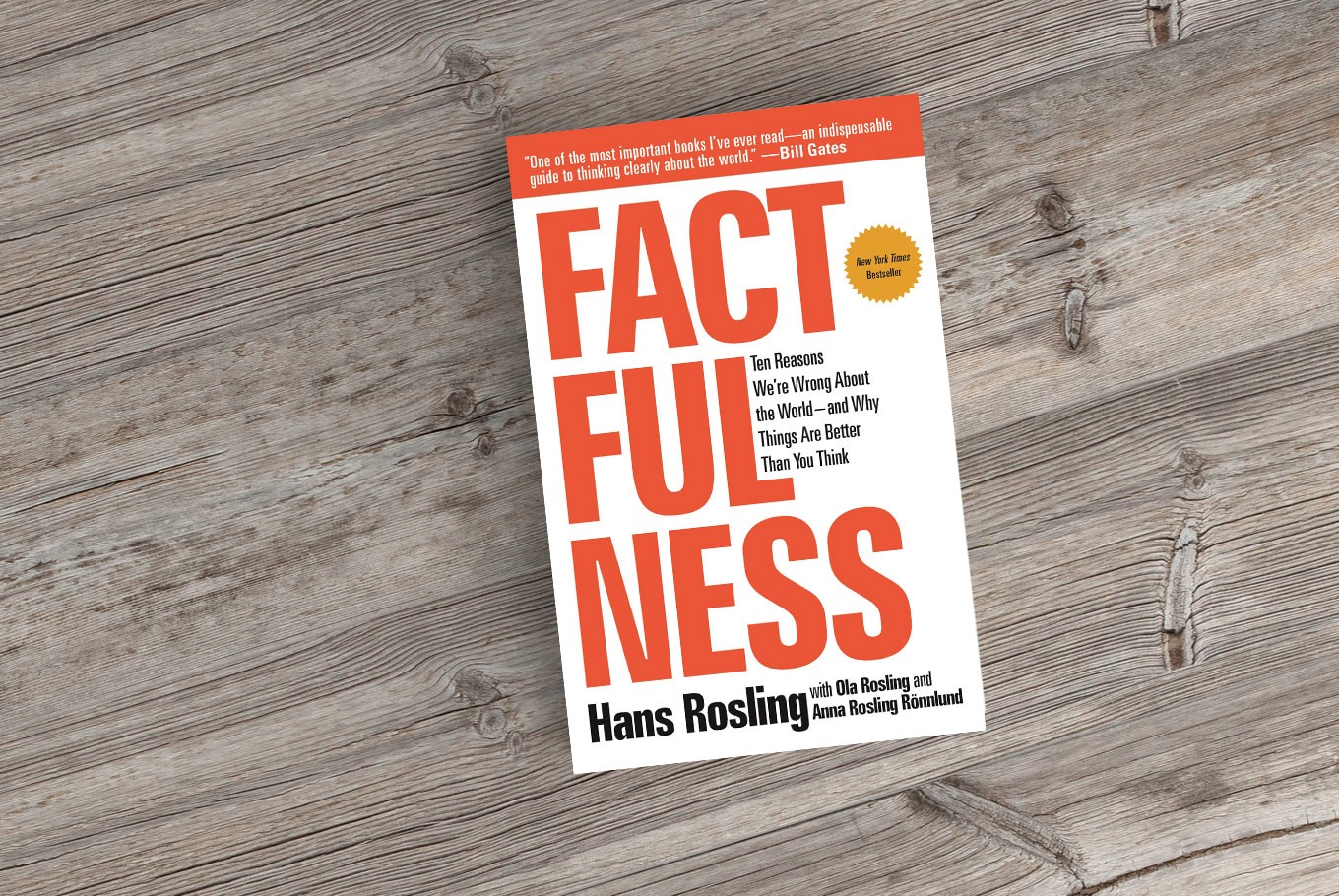Popular Reads
Top Results
Can't find what you're looking for?
View all search resultsPopular Reads
Top Results
Can't find what you're looking for?
View all search results'Factfulness': When numbers ring true on world progress
The book is an eye-opener on our ignorance and bias in the way we see global progress and developments.
Change text size
Gift Premium Articles
to Anyone
T
hanks to the advances in technology, any information can be consumed at a single click. However, this does not guarantee that our perspective on the world relate to actual global conditions.
The late Swedish physician and statistician Hans Rosling gives us an eye-opening insight to how ignorant we are in the way we see global progress in his latest and posthumously published book, Factfulness, co-authored by Ola Rosling and Anna Rosling Rönnlund.
Factfulness debuted at its April 2018 launch at number 5 on The New York Times Best Seller List for hardcover nonfiction. The book has been translated into 11 languages, and will soon be available in 36 languages. Millions of readers were captivated by Rosling's fascinating ability to make the data sing, primarily thanks to his billionaire friend, Bill Gates, for his never-ending promotion and support.
Rosling's vast experience in medicine and statistics – and, curiously, his long journey to become a sword-swallower – are well-thought out to make the book even more appealing to read. Before he began writing this book, Rosling was already widely known for his phenomenal TED Talks, viewed more than 35 million times. This led him to be honored as one of Time Magazine’s 100 Most Influential People of 2012.
Factfulness is mostly written from Rosling's’ standpoint and his journey from a young physician in northern Mozambique to a global health expert, and refers mainly to UN data. His son Ola and daughter-in-law Anna finished the book after his’ death in February 2017. Ola played a major role in developing the Gapminder tool that was Rosling uses throughout nearly the entire book..
Anna’s project, Dollar Street, is also presented as another form of data visualization, which uses photographs to develop a fact-based worldview. Her approach to combating world ignorance is to present 264 photographs of homes in 50 countries, including up to 135 objects in a single house, to help us gain a better understanding of actual world conditions.
Rosling's vital instrument in fighting ignorance is his "little experiment", called The Ignorance Project. He conducted the project in dozens of countries, which involved thousands of people with backgrounds in various fields of expertise. The result paints a portrait of disturbing truths on how we have underrated improvements in the world by relying only on our preconceived ideas.
Our minds have tricked us into setting our sights on the spotlight rather than on seeking the realities behind the media curtain. This unwitting habit has lured us into maintaining our preconceived ideas instead of updating them to match new and actual conditions. Unintentionally, our global knowledge is still based on our own biases rather than the facts on the slow but steady world progress through data reports – reports that get much less attention in mainstream media.
Today’s world has now reached "peak child", a term Rosling coined to describe the moment in global demographic history at which the world population of children stops growing. Nonetheless, this amazing development has not received any attention in mainstream news, merely because of its slow progression. At the same time, the news that a man refuses to use contraceptives although he has already produced eight living children will draw much more attention than the fact that the global total fertility rate (TFR) is declining. This is one example of how ignoring the facts will eventually lead many to have a distorted view of developments in the world.
Although Factfulness is based heavily on data and statistics, Rosling's skill in storytelling allows us to see the data in a funner and lighter way, bringing his own nuance to the way rigid numbers are visualized. It’s easier to interpret 3-dimensional data, even on a global scale, through Ola's a Gapminder bubble. The tool's central idea is to use the bubble as the population size and plot it on a chart that can only contain two variables. This brilliant tool has been widely adopted by many researchers and renowned companies, like Google.
You don’t have to be a number geek to read this book. Rosling successfully interprets "boring" numbers into interesting facts that are worth knowing. While giving us an insightful world-based view, Factfulness also teaches us a valuable life's lesson from a humble world expert who devoted his life to studying hunger in Africa for almost 20 years. (kes)
***
The writer is a statistician who is currently working at a regional statistics bureau in East Nusa Tenggara (NTT) and is a proud member of the Aksi Untuk NTT youth organization.











